
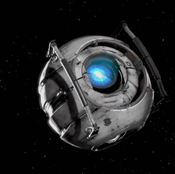
Half Life
Half-Life is a 1998 first-person shooter (FPS) game developed by Valve Corporation and published by Sierra Studios for Windows. It was Valve's debut product and the first game in the Half-Life series. The player assumes the role of Gordon Freeman, a scientist who must escape from the Black Mesa Research Facility after it is invaded by aliens following a disastrous scientific experiment. The gameplay consists of combat, exploration and puzzles. Valve was disappointed with the lack of innovation in the FPS genre, and aimed to create an immersive world rather than a "shooting gallery". Unlike other games at the time, the player has almost uninterrupted control of the player character; the story is mostly experienced through scripted sequences rather than cutscenes. Valve developed the game using GoldSrc, a heavily-modified version of the Quake engine, licensed from id Software. The science fiction novelist Marc Laidlaw was hired to craft the plot and assist with design. Half-Life received acclaim for its graphics, gameplay and narrative and won more than 50 PC "Game of the Year" awards. It is considered one of the most influential FPS games and one of the greatest video games ever made. By 2008, it had sold more than nine million copies. It was ported to the PlayStation 2 in 2001, along with the multiplayer expansion Decay, and to OS X and Linux in 2013. Valve ported Half-Life to its Source engine as Half-Life: Source in 2004. In 2020, Crowbar Collective released an unofficial remake, Black Mesa. Half-Life inspired numerous fan-made mods, some of which became standalone games, such as Counter-Strike, Day of Defeat, and Sven Co-op. It was followed by the expansion packs Opposing Force (1999) and Blue Shift (2001), developed by Gearbox Software, and the sequels Half-Life 2 (2004), Half-Life 2: Episode One (2006), Half-Life 2: Episode Two (2007) and Half-Life: Alyx (2020).
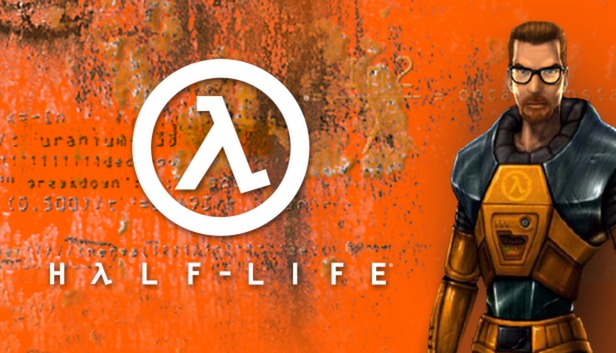

Portal 1
Portal is a 2007 puzzle-platform game developed and published by Valve. It was released in a bundle, The Orange Box, for Windows, Xbox 360 and PlayStation 3, and has been since ported to other systems, including Mac OS X, Linux, Android (via Nvidia Shield), and Nintendo Switch. Portal consists primarily of a series of puzzles that must be solved by teleporting the player's character and simple objects using "the Aperture Science Handheld Portal Device", also referred to as the "portal gun", a device that can create intra-spatial portals between two flat planes. The player-character, Chell, is challenged and taunted by an artificial intelligence named GLaDOS (Genetic Lifeform and Disk Operating System) to complete each puzzle in the Aperture Science Enrichment Center using the portal gun with the promise of receiving cake when all the puzzles are completed. The Source Engine's physics system allows kinetic energy to be retained through portals, requiring creative use of portals to maneuver through the test chambers. This gameplay element is based on a similar concept from the game Narbacular Drop; many of the team members from the DigiPen Institute of Technology who worked on Narbacular Drop were hired by Valve for the creation of Portal, making it a spiritual successor to the game. Portal was acclaimed as one of the most original games of 2007, despite some criticism for its short duration. It received praise for its originality, unique gameplay and a dark story and sense of comedy. GLaDOS, voiced by Ellen McLain in the English-language version, received acclaim for her unique characterization, and the end credits song "Still Alive", written by Jonathan Coulton for the game, was praised for its original composition and humor. Portal is often cited as one of the greatest video games ever made. Excluding Steam download sales, over four million copies of the game have been sold since its release, spawning official merchandise from Valve including a model portal gun and plush Companion Cubes, as well as fan recreations of the cake. A standalone version with extra puzzles, Portal: Still Alive, was also published by Valve on the Xbox Live Arcade service in October 2008 exclusively for Xbox 360. A sequel, Portal 2, was released in 2011, which expanded on the storyline, added several gameplay mechanics, and included a cooperative multiplayer mode.

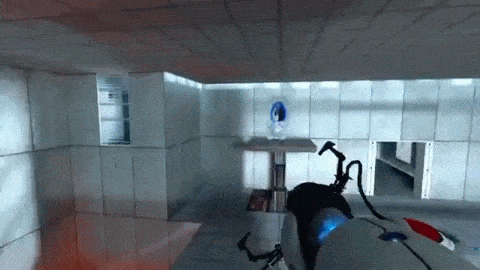
Portal 2
Portal 2 is a 2011 puzzle-platform game developed by Valve for Windows, Mac OS X, Linux, PlayStation 3, and Xbox 360. The digital PC version is distributed online by Valve's Steam service, while all retail editions were distributed by Electronic Arts. A port for the Nintendo Switch was included as part of Portal: Companion Collection. Like the original Portal (2007), players solve puzzles by placing portals and teleporting between them. Portal 2 adds features including tractor beams, lasers, light bridges, and paint-like gels that alter player movement or allow portals to be placed on any surface. In the single-player campaign, players control Chell, who navigates the dilapidated Aperture Science Enrichment Center during its reconstruction by the supercomputer GLaDOS (Ellen McLain); new characters include robot Wheatley (Stephen Merchant) and Aperture founder Cave Johnson (J. K. Simmons). In the new cooperative mode, players solve puzzles together as robots Atlas and P-Body (both voiced by Dee Bradley Baker). Jonathan Coulton and the National produced songs for the game. Valve announced Portal 2 in March 2010, and promoted it with alternate reality games including the Potato Sack, a collaboration with several independent game developers. After release, Valve released downloadable content and a simplified map editor to allow players to create and share levels. Portal 2 received critical acclaim for its gameplay, balanced learning curve, pacing, dark humor, writing, and acting. Like its predecessor, it has been described as one of the greatest video games ever made by numerous publications and critics.
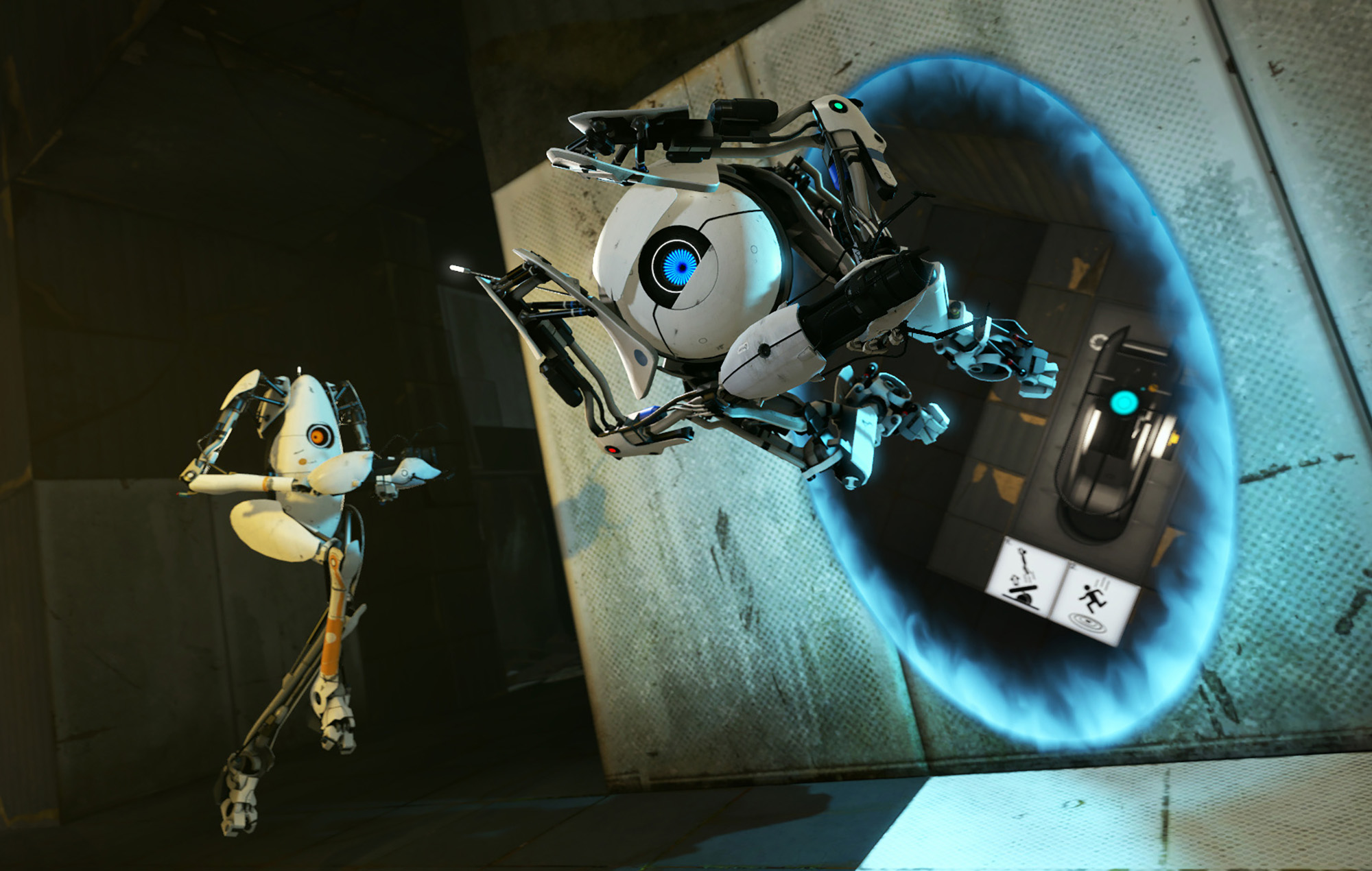
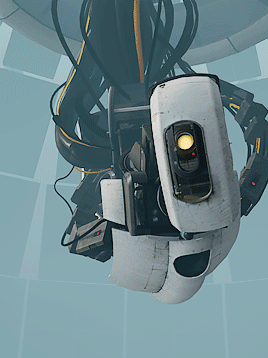 TF2
TF2
Team Fortress 2 (TF2) is a 2007 multiplayer first-person shooter game developed and published by Valve Corporation. It is the sequel to the 1996 Team Fortress mod for Quake and its 1999 remake, Team Fortress Classic. The game was released in October 2007 as part of The Orange Box for Windows and the Xbox 360, and ported to the PlayStation 3 in December 2007.[1][2] It was released as a standalone game for Windows in April 2008, and updated to support Mac OS X in June 2010 and Linux in February 2013. It is distributed online through Valve's digital retailer Steam, with Electronic Arts managing retail and console editions. Players join one of two teams—RED and BLU—and choose one of nine character classes to play as, with game modes including capture the flag and king of the hill. Development was led by John Cook and Robin Walker, the developers of the original Team Fortress mod. Team Fortress 2 was announced in 1998 under the name Team Fortress 2: Brotherhood of Arms. Initially, the game had more realistic, militaristic visuals and gameplay, but this changed over the protracted nine years of development. After Valve released no information for six years, Team Fortress 2 regularly featured in Wired News's annual vaporware list among other entries. Finally released on the Source game engine in 2007, Team Fortress 2 preserved much of the core class-based gameplay of its predecessors while featuring an overhauled, cartoon-like visual style influenced by the works of J. C. Leyendecker, Dean Cornwell, and Norman Rockwell, alongside an increased focus on the visual and verbal characterization of its playable classes and what the developers have described as a 1960s spy movie aesthetic.
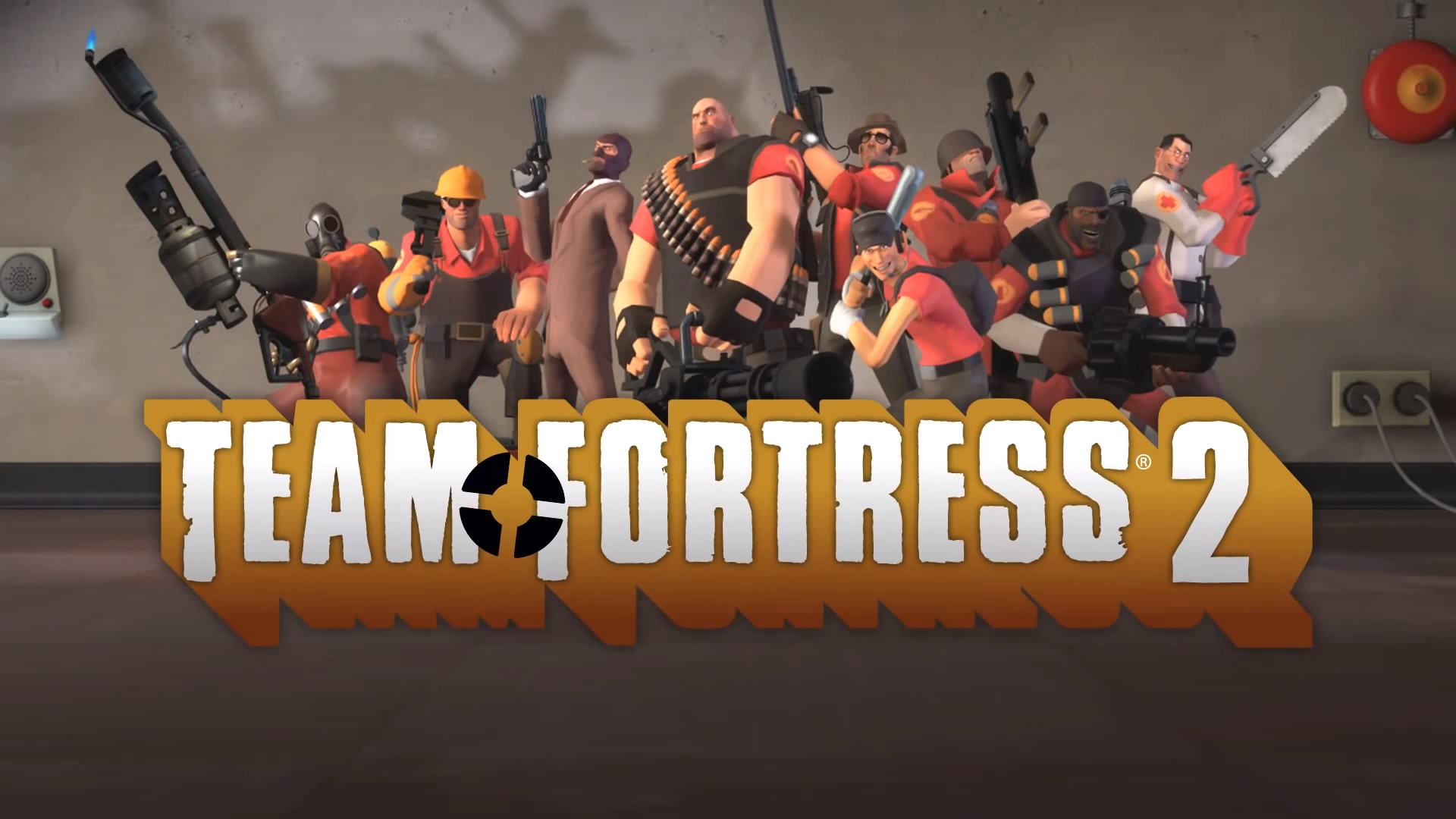
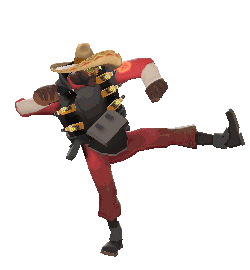 Left 4 Dead
Left 4 Dead
Left 4 Dead is a 2008 first-person shooter game developed by Valve South and published by Valve. It was originally released for Microsoft Windows and Xbox 360 in November 2008 and for Mac OS X in October 2010, and is the first title in the Left 4 Dead series. Set during the aftermath of a zombie outbreak on the East Coast of the United States, the game pits its four protagonists, dubbed the "Survivors", against hordes of the infected. Left 4 Dead uses Valve's proprietary Source engine, with four game modes: a single-player mode in which allied characters are controlled by AI, a four-player co-op campaign mode, an eight-player online versus mode, and a four-player survival mode. In all modes, an artificial intelligence dubbed the "Director" controls level pacing and item placements in an attempt to create a dynamic experience and increase replay value. Left 4 Dead was well-received by the industry media upon its release, with praise for its replay value, focus on cooperative play, and cinematic feel, although some criticized its limited level selection and lack of narrative. Considered one of the greatest video games ever made, the game won several publication awards, as well as distinctions from the Academy of Interactive Arts & Sciences and British Academy of Film and Television Arts. As was done with Team Fortress 2, Valve supplemented the game with free downloadable content. The success of the game led to the development of the sequel Left 4 Dead 2, which was released in 2009. In 2012, all Left 4 Dead campaigns were ported over to Left 4 Dead 2, with cross-platform multiplayer support between Windows and Mac versions of the game.

Counter Strike
Counter-Strike (also known as Half-Life: Counter-Strike or Counter-Strike 1.6) is a tactical first-person shooter game developed by Valve. It was initially developed and released as a Half-Life modification by Minh "Gooseman" Le and Jess Cliffe in 1999, before Le and Cliffe were hired and the game's intellectual property acquired. Counter-Strike was released by Valve for Microsoft Windows in November 2000, and is the first installment in the Counter-Strike series. Several remakes and ports were released on Xbox, as well as OS X and Linux. Set in various locations around the globe, players assume the roles of counter-terrorist forces and terrorist militants opposing them. During each round of gameplay, the two teams are tasked with defeating the other by the means of either achieving the map's objectives or eliminating all of the enemy combatants. Each player may customize their arsenal of weapons and accessories at the beginning of every match, with currency being earned after the end of each round.
